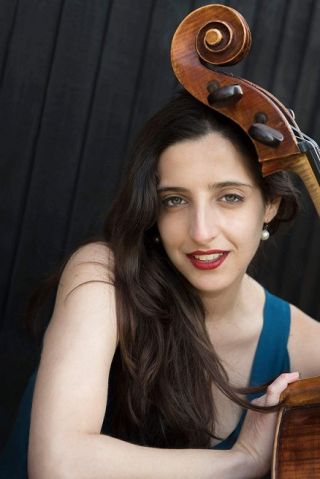Career
Why Some Follow a Dream Even When the Odds of Success Are Low
3 stories of midlife and mid-career reinvention.
Posted April 11, 2024 Reviewed by Gary Drevitch
Key points
- Our beliefs can hold us back from choosing a more enlightening path going forward.
- When we listen to our passions, discouraging noise from the outside world fades away.
- Eventually, the world may come to cherish these quirky dreams.
We are no longer surprised to witness mid-career professionals (often well-established in their careers) transition to completely different fields in the span of a few months. We sometimes embrace the new choices made wholeheartedly, or even marvel at those career-changers' daringness to reinvent themselves—but more often, we are secretly skeptical and may call their decisions just a “phase."
This is especially true for certain pursuits like mathematics, physics, classical music, chess playing, and acquiring a new language. We may be inclined to shrug our shoulders and engage in self-talk such as, “Oh, well, if it were 10, 20, or 30 years ago, I’d probably consider seriously studying that subject or pursuing that career professionally. But now that I have a family, a real job, and a social life, I can’t imagine pursuing something as intensely as a youngster would or having the bandwidth of a teenager.” This attitude reflects the implicit belief that certain fields have limited room for development if we haven’t acquired all the foundational skills at a young age. Valid or not, this belief may have prevented some people from pursuing their dreams or trying something they’d always been fascinated by later in life.
Three Stories, One Theme
Three stories inspired this post. The first comes from the movie Queen to Play, in which the protagonist Hélène (Sandrine Bonnaire), a housekeeper and a devoted wife and mother, finds herself lacking any passion in her life. When she serendipitously observed a couple play chess, she was immediately captivated by the game and became determined to master it herself. Under the tutelage of one of her clients, she eventually did master chess playing and won local competitions against younger, highly skilled players with a track record of winning.
The second story is that of a middle-aged community college graduate who, in his own words, held several odd jobs for many years. He started as a backyard star-gazer whose only scientific instrument was a telescope and whose only credential was an associate degree. Because of his passion for astrophysics, he remained a lifelong learner in that subject area. He augmented his limited formal education with evening calculus, linear algebra, and theoretical physics classes while working multiple jobs. Additionally, he completed several self-initiated projects and contacted observatories, planetariums, and university laboratories to share his observations, computations, and analyses. Eventually, he caught the attention of the astrophysics department at a university I worked for. The rest was history. He has since been invited to give talks at planetarium shows to motivate aspiring astrophysicists from non-traditional backgrounds to pursue their dreams despite the practical challenges and the illusion of missed opportunities.

The third story is shared with me through an interview with Tamar Sagiv a professional cellist of high caliber who has been trained in top music conservatories in the U.S. (Manhattan School of Music) and Israel (The Buchmann-Mehta School of Music, Tel Aviv University). As noted by Sagiv, “Although I started playing the cello at the age of 8 and grew up in a musical household with a professional musician mother, I didn't realize my passion for the cello until my mid-teens. While some might consider this young, in classical music, it's considered relatively late to begin a serious pursuit. However, I believe that dedication and passion outweigh age in the artistic realm.” Sagiv made her debut in composing at the onset of the pandemic. Initially, she treated composing as an emotional outlet for her frustrations, grief, and existential angsts as a result of an extreme circumstance. Today, she is compiling an album of music that she composed on the theme of grief and loss which is to be released soon. “The process of creating helped me. I felt like I found myself again,” Sagiv says. "I composed all of the music on this album during a time when I was grieving, and composing this music was my only way to express that.”
Postlude
The three stories shared in this post converged onto a single theme: Artists, scientists, and everyday people can feel inexplicably drawn to a pursuit at a later point in life. When they listen attentively to their heart’s calling, the noise from the outside world—be it societal expectation or social conditioning—fades into the distance. Eventually, the world starts to cherish their quirky dreams. Will you embrace your dream with an open heart, when the odds of winning the game may not be high?


